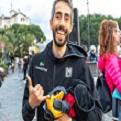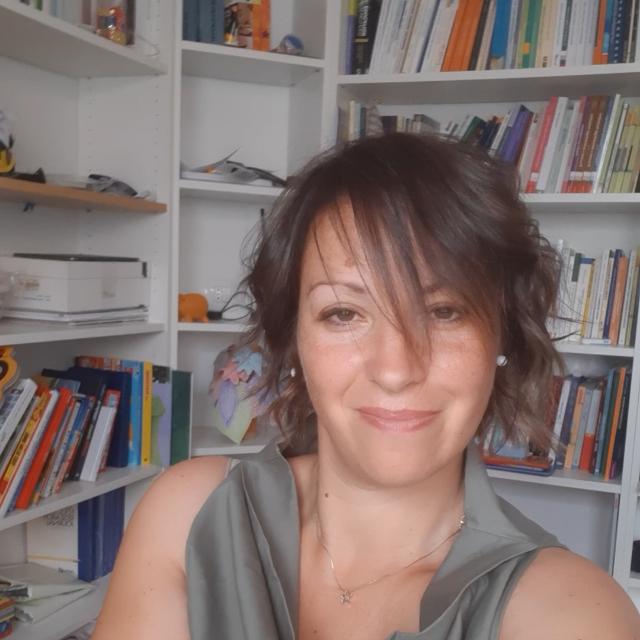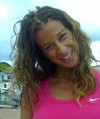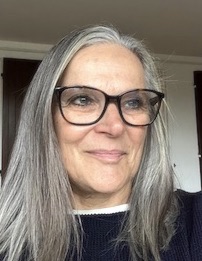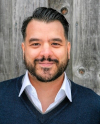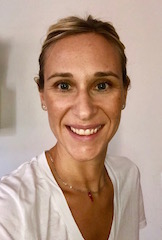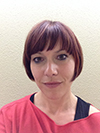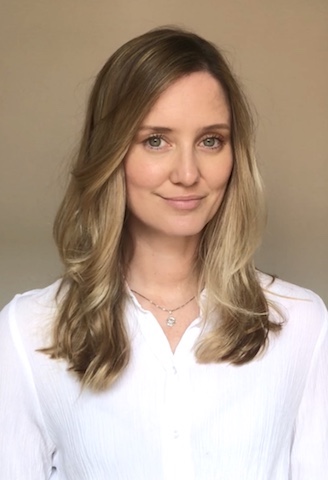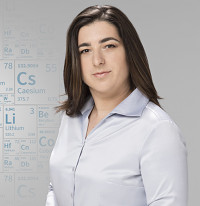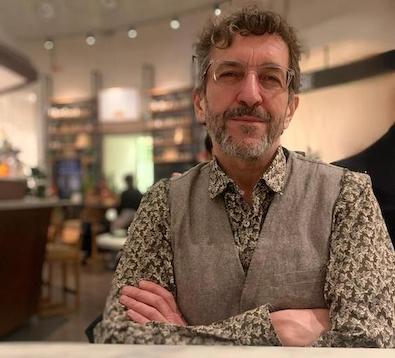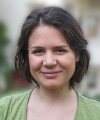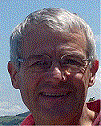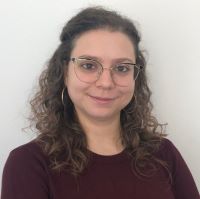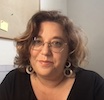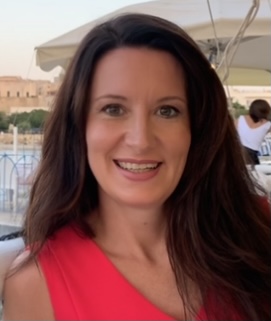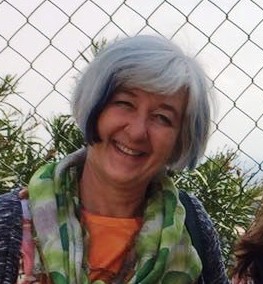Studying at the University of Verona
Here you can find information on the organisational aspects of the Programme, lecture timetables, learning activities and useful contact details for your time at the University, from enrolment to graduation.
Academic calendar
The academic calendar shows the deadlines and scheduled events that are relevant to students, teaching and technical-administrative staff of the University. Public holidays and University closures are also indicated. The academic year normally begins on 1 October each year and ends on 30 September of the following year.
Course calendar
The Academic Calendar sets out the degree programme lecture and exam timetables, as well as the relevant university closure dates..
| Period | From | To |
|---|---|---|
| Sem. 1A | Sep 27, 2021 | Oct 30, 2021 |
| Sem. 1B | Nov 15, 2021 | Dec 18, 2021 |
| Sem. 2A | Feb 21, 2022 | Mar 26, 2022 |
| Sem. 2B | Apr 20, 2022 | May 20, 2022 |
| Session | From | To |
|---|---|---|
| Sessione Invernale | Jan 24, 2022 | Feb 19, 2022 |
| Sessione estiva | Jun 13, 2022 | Jul 23, 2022 |
| Sessione autunnale | Aug 29, 2022 | Sep 24, 2022 |
| Session | From | To |
|---|---|---|
| Sessione estiva - 1° Appello | Jun 20, 2022 | Jun 21, 2022 |
| Sessione estiva - 2° Appello | Jul 7, 2022 | Jul 12, 2022 |
| Sessione autunnale | Nov 3, 2022 | Nov 4, 2022 |
| Period | From | To |
|---|---|---|
| FESTIVITA' OGNISSANTI | Nov 1, 2021 | Nov 1, 2021 |
| Festa dell'Immacolata | Dec 8, 2021 | Dec 8, 2021 |
| Vacanze di Natale | Dec 25, 2021 | Jan 6, 2022 |
| Vacanze Pasquali | Apr 15, 2022 | Apr 19, 2022 |
| Festa della Liberazione | Apr 25, 2022 | Apr 25, 2022 |
| FESTA DEL LAVORO | May 1, 2022 | May 1, 2022 |
| Festività Santo Patrono di Verona | May 21, 2022 | May 21, 2022 |
| Festa della Repubblica | Jun 2, 2022 | Jun 2, 2022 |
| Vacanze estive | Aug 8, 2022 | Aug 15, 2022 |
| Description | Period | From | To |
|---|---|---|---|
| Laboratori insegnamenti del Sem.1A | Lab. 1A | Nov 2, 2021 | Nov 13, 2021 |
| Laboratori insegnamenti del Sem.1B - VACANZE DAL 24/12 AL 2/01 E RECUPERO LEZIONI E LABORATORI DAL 3/1 ALL'8/1 | Lab. 1B | Dec 20, 2021 | Jan 22, 2022 |
| Laboratori insegnamenti del Sem.2A | Lab. 2A | Mar 28, 2022 | Apr 14, 2022 |
| Laboratori insegnamenti del Sem.2B | Lab. 2B | May 23, 2022 | Jun 11, 2022 |
Exam calendar
Exam dates and rounds are managed by the relevant Humanistic Studies Teaching and Student Services Unit.
To view all the exam sessions available, please use the Exam dashboard on ESSE3.
If you forgot your login details or have problems logging in, please contact the relevant IT HelpDesk, or check the login details recovery web page.
Should you have any doubts or questions, please check the Enrollment FAQs
Academic staff
 monica.antonello@univr.it
monica.antonello@univr.it
 valentina.biino@univr.it
valentina.biino@univr.it
 marisa.bonafini@univr.it
marisa.bonafini@univr.it
 antonio.cosentino@univr.it
antonio.cosentino@univr.it
 myriam.dimaio@univr.it
myriam.dimaio@univr.it
Ganzerla Luca Giovanni Michelangelo
 lucagiovanni.ganzerla@univr.it
lucagiovanni.ganzerla@univr.it
 licia.landi@univr.it
licia.landi@univr.it
 giuseppe.longo@univr.it
giuseppe.longo@univr.it
 sara.mazzocato@univr.it
sara.mazzocato@univr.it
 beatrice.melodiafesta@univr.it
beatrice.melodiafesta@univr.it
 anja.meyer@univr.it
anja.meyer@univr.it
 robimontresor.rm@gmail.com
robimontresor.rm@gmail.com
 chiara.nardon@univr.it
chiara.nardon@univr.it
 beatrice.perin@univr.it
beatrice.perin@univr.it
 sofia.piacentin@univr.it
sofia.piacentin@univr.it
 michele.picotti@univr.it
michele.picotti@univr.it
 serena.polettini@univr.it
serena.polettini@univr.it
 valentina.romanzi@univr.it
valentina.romanzi@univr.it
 angeloluigi.sangalli@univr.it
angeloluigi.sangalli@univr.it
 3383725508
3383725508
 marco.ubbiali@univr.it
marco.ubbiali@univr.it
Study Plan
The Study Plan includes all modules, teaching and learning activities that each student will need to undertake during their time at the University.
Please select your Study Plan based on your enrollment year.
1° Year
| Modules | Credits | TAF | SSD |
|---|
2° Year activated in the A.Y. 2022/2023
| Modules | Credits | TAF | SSD |
|---|
3° Year activated in the A.Y. 2023/2024
| Modules | Credits | TAF | SSD |
|---|
4° Year It will be activated in the A.Y. 2024/2025
| Modules | Credits | TAF | SSD |
|---|
English laboratory 4th year
5° Year It will be activated in the A.Y. 2025/2026
| Modules | Credits | TAF | SSD |
|---|
| Modules | Credits | TAF | SSD |
|---|
| Modules | Credits | TAF | SSD |
|---|
| Modules | Credits | TAF | SSD |
|---|
| Modules | Credits | TAF | SSD |
|---|
English laboratory 4th year
| Modules | Credits | TAF | SSD |
|---|
| Modules | Credits | TAF | SSD |
|---|
Legend | Type of training activity (TTA)
TAF (Type of Educational Activity) All courses and activities are classified into different types of educational activities, indicated by a letter.
Inclusive education and teaching (2023/2024)
Teaching code
4S006153
Credits
10
Language
Italian
Scientific Disciplinary Sector (SSD)
M-PED/03 - METHODOLOGIES OF TEACHING AND SPECIAL EDUCATION
Courses Single
Not Authorized
The teaching is organized as follows:
Pedagogia speciale per l'inclusione
Laboratorio di Pedagogia speciale per l'inclusione [Gruppo 1]
Laboratorio di Pedagogia speciale per l'inclusione [Gruppo 2]
Laboratorio di Pedagogia speciale per l'inclusione [Gruppo 3]
Laboratorio di Pedagogia speciale per l'inclusione [Gruppo 4]
Didattica speciale per l'inclusione
Laboratorio di Didattica speciale per l'inclusione [Gruppo 1]
Laboratorio di Didattica speciale per l'inclusione [Gruppo 2]
Laboratorio di Didattica speciale per l'inclusione [Gruppo 3]
Laboratorio di Didattica speciale per l'inclusione [Gruppo 4]
Learning objectives
Special Needs Pedagogy
The goal of the course is to let preservice teachers understand the challenges that students with special educational needs represent in contemporary school: the focus is related to the role of the teacher in this challenge. At the same time it is crucial to identify the necessary sources to realize an inclusive project: it starts from the knowledge of the different realities the students can find in a class (Special Educational Needs, Attention-Deficit/Hyperactivity Disorder, learning disabilities, foreign students, behavioral diseases). In order to achieve this, the teacher needs inclusive educational skills and, in the meanwhile, the ability to reach compensatory and dispensatory techniques: teachers must be able to evaluate the competence of the student trying to highlight their strong points such as the cognitive profile and way of learning, beyond difficulties. Preservice teachers will learn to find the most efficient strategies: a special attention will be given to the most efficient techniques for the classroom management.
Teaching for inclusion
The goal of the course is to describe the different problematic situations that a teacher must face (Special Educational Needs, ADHD, ASD, foreign students, behavioral problems), and to give to preservice teacher the skills of inclusive education necessary to put into place compensatory and dispensatory measures. Besides the preservice teachers will also learn to assess the skills of the student trying to highlight their cognitive and learning style because this evaluation makes it possible to establish the most effective teaching strategies in the individual disciplines, to ensure the inclusion of students in difficulty.
Prerequisites and basic notions
The prerequisites for students will be:
- knowledge of the main pedagogical and didactic theories in the age period the 3-6 year;
- knowledge of the lines of psychological development in in the age period 3-6 year;
Program
The program consists of the following topics:
- Introduction and basic concepts about inclusion;
- Historical overview of models and approaches to disability and in-depth study of the United Nations Convention on the Rights of Persons with Disabilities;
- In-depth study of the bio-psychosocial model and introduction to the ICF;
- The legislation that led to inclusion and Special Educational Needs;
- The IEP and the Index for Inclusion. A tools's comparison;
- The inclusive school: what aspects to consider to create an inclusive environment;
- The prerequisites and class management for inclusion;
- The inclusive curriculum;
- The teachers' profile for promoting an inclusive school;
- The classmates as resource.
Coure' materials:
- Lessons slides.
- Chapters 1, 2 e 3 of the book "Il piano educativo individualizzato su base ICF. Strumenti e prospettive per la scuola”, (Angelo Lascioli e Luciano Pasqualotto).
- Chapters 5, 12 e 14 of the book “Didattica speciale e inclusione scolastica”, (Lucio Cottini).
Bibliography
Didactic methods
Different teaching methods will be used during the course, including:
- Frontal lesson;
- Articles' reading and debating;
- Case studies;
- Laboratory activities;
- View of videos;
- Experiences drawn from the professional context.
Learning assessment procedures
The learning assessment will take place through a written test (composed by 15 questions, each question with four possible answers and only one correct), related to the topics covered during the course. Students must demonstrate:
- To have understood the relevant elements underlying the main theories and main documents relating to inclusion;
- To have understood the elements characterizing the inclusive educational action;
- To be able to critically analyze the case studies and experiences presented.
Evaluation criteria
The evaluation will be out of thirty. Each correct answer will receive 2 points, each error or answer not given will receive zero points. To pass the exam, at least 9 questions should be answered correctly.
Criteria for the composition of the final grade
More information will be provided during the lessons.
Exam language
Italiano
Type D and Type F activities
Gli 8 crediti liberi a scelta dello studente (ambito “D”) hanno lo scopo di offrire allo studente la possibilità di personalizzare il proprio percorso formativo permettendo di approfondire uno o più argomenti di particolare interesse legati al proprio percorso accademico.
Per garantire questo fine, si invitano gli studenti a rispettare le seguenti indicazioni per il completamento di tale ambito:
- almeno un’attività formativa erogata come esame universitario (con relativo voto in trentesimi) di insegnamenti compresi nei settori scientifico disciplinari previsti nel piano di Studio (oltre ai settori di M-FIL) aventi stretta congruenza con il profilo professionalizzante del corso di laurea; il Collegio didattico ha indicato che sarà possibile scegliere fra i seguenti esami della LM di Scienze pedagogiche (Epistemologia della ricerca educativa - 9 cfu M-PED/01, Ermeneutica pedagogica - 6 cfu M-PED/01, Etnografia nei contesti educativi - 9 cfu M-DEA/01, Fenomenologia della cura - 6 cfu M-FIL/03, Psicologia sociale dei gruppi e delle organizzazioni - 9 cfu M-PSI/05, Teorie e metodi dell'educazione inclusiva - 6 cfu M-PED/03) e gli esami di Geografia applicata - 6 cfu M-GGR/01 della laurea in Scienze psicologiche per la formazione e Geografia BC - 6 cfu M-GGR/01 della laurea in Beni Culturali;
- massimo 6 cfu relativi a competenze linguistiche (oltre a quelli previsti dal PdS);
- partecipando ad attività formative espressamente approvate dal CdS;
- non vengono valutate attività svolte in Erasmus non inserite nei Learning Agreement.
Altre informazioni sono reperibili nella Guida per i crediti liberi che è possibile trovare quì.
| years | Modules | TAF | Teacher |
|---|---|---|---|
| 4° 5° | Summer School: Human Sciences and Society - (HSaS) | F |
Massimiliano Badino
(Coordinator)
|
| years | Modules | TAF | Teacher |
|---|---|---|---|
| 4° 5° | Laboratorio “Calendario di Memoria Civile – Giornata della Memoria” | F |
Olivia Guaraldo
(Coordinator)
|
| years | Modules | TAF | Teacher |
|---|---|---|---|
| 4° 5° | Introduction to empathic communication for teachers in pre-school and primary school | F |
Jessica Bertolani
(Coordinator)
|
| 4° 5° | Art education in pre-school and primary school | F |
Franco Bolondi
(Coordinator)
|
| years | Modules | TAF | Teacher |
|---|---|---|---|
| 4° 5° | Neuroscience and Education: practical activities for primary schools | F |
Claudio Girelli
(Coordinator)
|
| 4° 5° | Rhythm without music. Reading, analysing and composing rhymes | F |
Claudio Girelli
(Coordinator)
|
| 4° 5° | School-family relationship in pre-school and primary school | F |
Paola Dusi
(Coordinator)
|
| years | Modules | TAF | Teacher |
|---|---|---|---|
| 4° 5° | Laboratorio italiano l2 | F |
Marina Righetti
(Coordinator)
|
| 4° 5° | Laboratorio legislazione scolastica | F |
Donato De Silvestri
(Coordinator)
|
| 4° 5° | Laboratorio per la scuola | F |
Roberta Silva
(Coordinator)
|
Career prospects
Module/Programme news
News for students
There you will find information, resources and services useful during your time at the University (Student’s exam record, your study plan on ESSE3, Distance Learning courses, university email account, office forms, administrative procedures, etc.). You can log into MyUnivr with your GIA login details: only in this way will you be able to receive notification of all the notices from your teachers and your secretariat via email and soon also via the Univr app.
Stage e Tirocini
Le attività di tirocinio indirette e dirette, per complessive 600 ore pari a 24 crediti formativi universitari, come stabilito dal D.M. 249/2010, hanno inizio nel secondo anno di corso e si svolgono secondo modalità tali da assicurare un aumento progressivo del numero dei relativi crediti formativi universitari fino all'ultimo anno.La struttura generale del tirocinio prevede:
- II annualità 100 ore di tirocinio pari a 4 CFU
- III annualità 100 ore di tirocinio pari a 4 CFU
- IV annualità 175 ore di tirocinio pari a 7 CFU
- V annualità 225 ore di tirocinio pari a 9 CFU.
Il tirocinio è seguito da insegnanti tutor coordinatori e da tutor organizzatori distaccati, rispettivamente a tempo parziale e a tempo pieno, presso il CdS. Esso prevede attività che si sviluppano secondo modalità di partecipazione periferica e modalità di partecipazione attiva: tali attività dovranno essere, adeguatamente documentate da parte dello studente e saranno supervisionate dai tutor competenti.
La frequenza alle attività di tirocinio è obbligatoria.
Documents
| Title | Info File |
|---|---|
|
|
pdf, it, 115 KB, 23/06/21 |
Progetto Dinamo corsi di formazione continua
I corsi del Progetto Dinamo sono una proposta di formazione continua per i/le docenti della scuola dell'infanzia e primaria in servizio elaborata dal Corso di Studi in Scienze della Formazione Primaria dell'Università di Verona.
La loro frequenza, in numero limitato, è aperta anche agli studenti di Scienze della formazione primaria.
L'iscrizione non comporta oneri per gli studenti.
Per i corsi di 8 ore sarà riconosciuto 1 CFU nei crediti liberi; per quelli di 16 ore i crediti liberi riconosciuti saranno 2.
Le modalità di iscrizione saranno comunicate e gestite tramite i rappresentanti degli studenti.
Documents
| Title | Info File |
|---|---|
|
|
pdf, it, 198 KB, 29/08/22 |
Gestione carriere
Linguistic training CLA
Practical information for students
Documents
| Title | Info File |
|---|---|
|
|
pdf, it, 325 KB, 02/05/23 |
|
|
pdf, it, 212 KB, 02/05/23 |
|
|
pdf, it, 131 KB, 02/05/23 |
Student mentoring
Student login and resources
Graduation
Documents
| Title | Info File |
|---|---|
|
|
pdf, it, 434 KB, 07/02/24 |
|
|
pdf, it, 418 KB, 30/11/23 |
|
|
pdf, it, 131 KB, 19/03/24 |
eTwinning
Il Corso di SFP di Verona fa parte del Gruppo Europeo per la formazione eTwinning per i futuri insegnanti – Initial Teacher Education (ITE). Seminari di presentazione della piattaforma e delle sue potenzialità, introduzione alla comunità e/o laboratori sull’uso della stessa sono proposti annualmente come parte integrante dei Laboratori di Lingua Inglese per la Professionalità Docente, e quindi come parte dell’offerta formativa; per il II anno anche con attività progettuale in lingua inglese, studente-studente o a piccoli gruppi.
Per il I anno, a partire dall’ A.A. 2017/2018 è stato realizzato con il supporto dell’USR Veneto e la collaborazione delle ambasciatrici eTwinning un incontro seminariale di presentazione della comunità e piattaforma eTwinning, come parte del Laboratorio di Lingua Inglese per la Professionalità docente. Gli studenti svolgono attività di ricerca e reperimento materiale nel portale eTwinning, studiano alcuni progetti considerati “buone pratiche” e si confrontano con una breve attività in piccolo gruppo sui primi passi di introduzione e orientamento ad un progetto eTwinning. Solitamente sono coinvolti circa un centinaio di studenti.
Per il II anno, a partire dall’A.A. 2020/2021, è stato introdotto un Laboratorio eTwinning (12 ore – 1CFU) di progettualità didattica in lingua inglese. Gli studenti svolgono attività individuali all’interno della Comunità volte a costruire una rete di partner e cogliere ogni potenzialità offerta dalla piattaforma. Inoltre, viene proposta una simulazione progettuale, in piccoli gruppi, dall’introduzione dei partner alla valutazione e disseminazione dei risultati di un progetto eTwinning. Solitamente partecipano circa un centinaio di studenti. Al termine del modulo è richiesto un portfolio digitale in lingua inglese. I futuri docenti esercitano contemporaneamente competenze linguistiche, digitali e sociali facilmente riutilizzabili nella professione futura.
Per il V anno, a partire dal AA 2022/2023, è stato introdotto, all'interno del Laboratorio di Lingua Inglese, un Laboratorio eTwinning di progettualità didattica con un altro ITE (12 ore – 1CFU).
Nell'a.a. 2022/2023 è stata attivata e realizzata una collaborazione con SFP - Università di Cagliari.
Nell'a.a. 2023/2024 si è attivata una collaborazione con l'Università di Castilla-La Mancha (Spagna).
Le attività realizzate sono state presentate durante il Coordinamento Nazionale eTwinning ITE
- a Firenze il 17 e 18 marzo 2022
- e a Lecce il 15 e 16 maggio 2023
